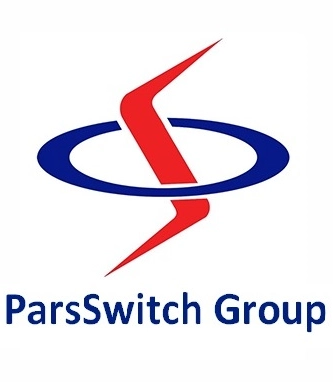Thankfully, there have only been a few times when someone at the table hasn’t pointed it out on my behalf and adjusted accordingly. However, when it has happened, I have to speak up to point out that I didn’t drink and I’m not subsidizing their drinking. I have always hated the feeling that I’m putting people out or being difficult.

For example, your friends can say they support your sober living journey and avoid offering substances to you. However, if they’re still opening and actively consuming substances in your presence, you may still need to separate yourself. Triggers for drug and alcohol use are typically defined as people, places, and things that remind you of your addictive behavior or encourage the use of substances you’re trying to avoid. They don’t have to be direct triggers, like someone offering you the substance. “The sober curious movement has led people to see the unhealthy habits that can go hand in hand with alcohol consumption,” she says. Sober living homes are generally designed for people in early recovery, or in outpatient treatment, though many are open to people at all stages of the recovery process.
Things Sober People Want You to Know
But most people will not notice or care whether you’re drinking or not. You can simply say, “I don’t drink” or “I don’t like how drinking makes me feel.” Anyone that doesn’t respect your decision not to drink reflects on them, not you. True friends will understand and support you in your choice to stay sober.
- If you don’t know how to make anything, this is a great opportunity to learn a new skill.
- Well-documented studies have demonstrated the restorative benefits of spending time outdoors and interacting with nature.
- These help boost mood and focus your attention away from urges to drink.
- For many, it’s a lifelong process of unlearning coping mechanisms that revolve around substances like alcohol or cannabis, and it’s also a process of relearning how to live life sober and stay sober.
- “Drinking has become such an allure in our culture and it’s not just about the buzz,” Rzadkowolska says.
Dean recommends having fun making festive alcohol-free cocktails and getting your friends and family involved. Tom, Jamie and Kali all say their friends and family have been really supportive of their decision not to drink. If you know what your triggers are, then it’s easy to avoid them. If you don’t, then start by looking at your past behavior and trying to figure out what makes you feel anxious or afraid. GateHouse Treatment has many inquiries about our sober recovery from potential participants and one of the most asked questions is, “What is an IOP and how can it help me? Utilizing our tips for coping with addiction means our participants are able to come and go from our facility and practice these techniques every time they encounter triggers and other scenarios in the real world.
Sober Fan Club members’ area
With this new movement has come a new verbiage available for problem drinkers that wasn’t available for many of us when we got sober. This new sobriety, a casual “checking out not drinking,” is a much easier pill to swallow than the extreme “you’re a person with substance use disorder” with its eternal abstinence that many of us had to choke down. It’s infinitely more appealing and could possibly sober up more people than Alcoholics Anonymous ever will. If sobriety being trendy makes 16-year-olds think it’s cool to stay sober instead of getting wasted on the weekends, well, awesome.

There are many non-alcoholic drink alternatives to popular alcoholic beverages. Most places have a menu of “mocktails” that allow you to feel like you’re socially fitting in with drinkers, but not dealing with the effects of alcohol yourself. It’s easy for you to avoid alcohol and have fun in the day, but when you go out to a social event at night, you start having problems.
Benefits of being sober curious
You will always be much more self-aware about your sobriety than anyone else will. Most people won’t think twice about whether you’re drinking, especially if they’re drinking—and those that do pressure you may be revealing their own problems by doing so. Just ignore negative vibes and hang out with people who don’t need substances to socialize, which is becoming a preferred lifestyle choice for millennials. One might argue this movement is not for people with substance use disorder. But many of us started off as “grey area drinkers” only to find ourselves in the black a few years later. I’d argue that this movement has given us an international platform for discourse on the dangerous glamorization of drinking as well as the chance to smash the stigma surrounding alcohol abuse, addiction, sobriety, and recovery.
- When you weren’t sober, the point of parties was to get drunk, high, and wasted off your mind.
- Another 30% consume, on average, less than one drink per week.
- It’s seen as normal to drink, and quitting that drug can feel like breaking a social pact.
- However, importantly, other research has reported a dramatic rise in overdose deaths among teens between 2010 to 2021, which remained elevated well into 2022 according to a NIDA analysis of CDC and Census data.
Sober curiosity empowers people to push back on this default mode of drinking and question the role alcohol plays in their lives. One common mistake for those who are new to alcohol and drug recovery is substituting a new compulsive behavior for their old one. People new to recovery can find themselves approaching their new diet, exercise program, sober network properties job, and even participation in support groups with a compulsion that echoes addiction. People in recovery from a substance use disorder frequently have problems meeting work-related responsibilities, maintaining employment, and managing money. If you were active in your addiction for a period of time, you may have developed financial problems.
When you make the decision to become sober, one of the most annoying things you have to deal with is your friends, family, and colleagues trying to convince you to have a drink. In many of our cultures, we’ve learned that having “fun” as an adult is hanging out and drinking or having dinner while also drinking. When you quit drinking, you must unlearn that to a large extent. Book clubs can be a LITTLE tricky because they sometimes involve alcohol. If you’re a big reader and want to find a book club to join, keep that in mind as you make your choice.
- So, take that painting or cooking class and spark a conversation while you wait for class to start.
- Those struggling need all the compassionate support they can get.
- If sobriety being trendy makes 16-year-olds think it’s cool to stay sober instead of getting wasted on the weekends, well, awesome.
- Maybe you’d like to learn the magical art of “small talk” or how to strike up a conversation at the next wedding you’re invited to.
It’s seen as normal to drink, and quitting that drug can feel like breaking a social pact. So your bold, life-improving decision to not drink will mean changes almost everywhere you look. Here are some surprising (and not-so-surprising) occurrences that will inevitably happen to your relationships, your identity, even your free time, and how I’ve learned to deal with each one. It’s been over six years since I first started seriously questioning my relationship with alcohol and considered a life without it. That’s six hard, beautiful, glorious years during which I not only stopped drinking, but also finally moved on from all recreational drugs as well as a history of bulimia. The Monitoring the Future survey is given annually to students in eighth, 10th, and 12th grades who self-report their substance use behaviors over various time periods, such as past 30 days, past 12 months, and lifetime.






